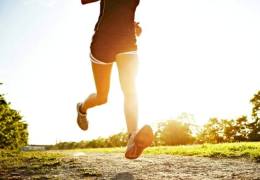28 January 2016
 A new UniSA research project is hoping to encourage more people to adopt a healthier lifestyle by using social networking as a tool to create an encouraging exercise community.
A new UniSA research project is hoping to encourage more people to adopt a healthier lifestyle by using social networking as a tool to create an encouraging exercise community.
Jemma Looyestyn, an Occupational Therapy Honours student at UniSA, is using Facebook to provide participants with a weekly running program.
The Facebook group will not only be used as a method of interacting with the researchers but also with other participants, generating a positive and motivating environment.
Dr Carol Maher from the Division of Health Sciences says the running program could be a great way to kick start an exercise routine for those who are not active runners.
“It can be intimidating to start to running if you aren’t in the habit. This project gives people the chance to start a new exercise program with other people who are all at the same level,” Dr Maher says.
Dr Maher is a supervisor of the project with a lot of research experience in the areas of social networking and mobile applications.
She says that what sets this project apart from most other running programs is the use of social media as it could be an instrumental tool to help people persevere with their exercise programs.
“We decided to use Facebook because it allows friends to sign on together and uses the power of social support to help participants stick with their new exercise regimen,” Dr Maher says.
“We are really interested in harnessing social communication and are looking at how it can change participant behaviour.”
The eight-week project targets people between the ages of 18-50 that are not currently undertaking any running regime and have no known health conditions.
The volunteers receive an eight-week training program that will gradually help them develop a higher fitness level and be able to run five kilometres.
Participants will be asked to complete an online survey, answering questions about their physical activity over the last seven days, and their attitudes and opinions of social exercise.
After recording and registering an assessment of their fitness, which can be completed in the convenience of their own home, participants will be randomly allocated to receive the program through Facebook or by a printed copy.
The results of the program can be recorded with the help of a printed fridge magnet and participants will be asked to repeat the online survey and self-administered assessment of fitness again after weeks 12 and 20.
“The participants in this study will not be competing against each other, rather they will have the chance to receive support from others in the group,” says Dr Maher.
“Running is one of the best forms of exercises around as it holds a large number of health benefits and can be done anywhere. You will definitely see positive health results if you complete the program.”
The eight-week UniSA research project is currently looking for more applicants and begins in February. Contact Dr Maher carol.maher@unisa.edu.au
Contact for interview: Carol Maher office (08) 8302 2315 email carol.maher@unisa.edu.au
Media Contact Kelly Stone office (08) 8302 0963 mobile 0417 861 832 email Kelly.stone@unisa.edu.au




